Nehru – Progenitor of illiberalism in India
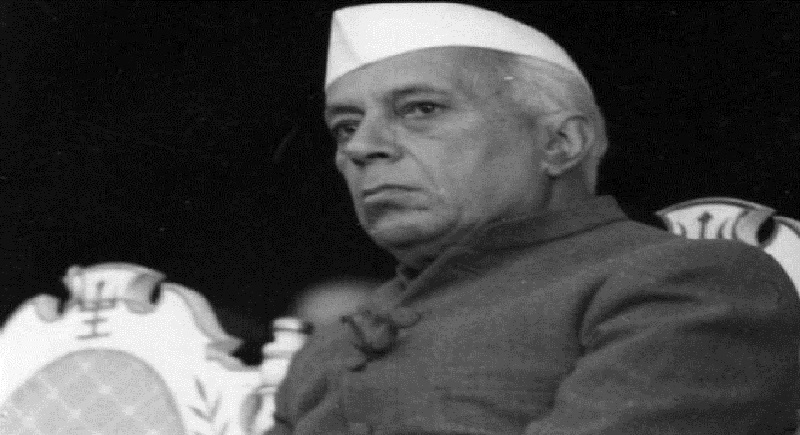
Extensive debate is currently going on in media with respect to various incidents of atrocities in India, particularly those related to the gaurakshaks, caste phobias, women and children exploiters and so on. It is assumed by many that these have been started soon after the coronation of Narendra Modi as Prime Minister in 2014 CE. Moreover these people believe that it is not just coincidence. There is a great hidden design to tarnish the RSS-pariwar by the so-called designer journalists. It is because they were getting many privileges under the Congress regime, for bashing the RSS-pariwar and felt that they are being deprived under the new regime. That is how they started to brand the new regime as illiberal and hence anathema to democracy in spite of the fact that Narendra Modi got majority in the Lok Sabha. They are not liberal enough to recognize this fact and public opinion and, act accordingly. So many so-called litterateurs, social thinkers, ex-government officers and other dignitaries in the national life particularly blame the RSS-pariwar for all such atrocities. They conveniently overlook many similar acts of illiberalism of other socio-political forces. See the extreme atrocities of ruling forces and their workers for all the misdeeds in the Panchayat polls currently being held in Bengal or the killings of RSS-pariwar workers in Kerala under the Marxist government and in Karnataka under Congress regime. The designer journalists do not bother to take note of such happenings as they are partisan in their outlook.
Many different award winners publicly proclaimed that they have returned their awards and prizes to the institutions that conferred these on them as a matter of protest of such incidences related to RSS-pariwar only. The media branded the incidences as illiberalism of RSS-pariwar as if its workers were the only ones who committed these crimes. Such award-vapsi was not observed when the RSS-pariwar workers were butchered in cold blood especially in Kerala and Karnataka. The same was never criticized under the Marxist regime in Bengal. This selective approach reveals the falsehood of their claim as liberalism. Similarly the so-called liberal intelligentsia selectively kept quite when similar crimes, in which RSS-pariwar was not apparently connected, occurred. Yet these award-vapsiwalas proclaimed themselves as true liberal and branded the RSS-pariwar as illiberal. This is the level of hypocrisy prevalent in present day Indian media. Is it liberalism practiced by this selfish intelligentsia in Indian polity? They are not bothered that such brandishing tarnishes the image of only India abroad. It is highly biased to say the least. Hence liberalism in present day India grossly means baiting of only RSS-pariwar and nothing else. They are never worried about the fate of true liberalism – most important quality to maintain vibrant democracy - in India. For them it is the tool to fulfill their selfish interests in RSS-pariwar baiting.
The terms liberalism or illiberalism are not discreet and no one is absolutely liberal or illiberal. It is a scale on which one may be liberal or illiberal with respect to some incident. It is in fact a perception under the influence of Newtonian-Cartesian world view that perceives things in discreet pieces and not holistically as under Einsteinian holistic perception. Hence those dominantly under the Newtonian-Cartesian influence brand individual or groups or organizations as illiberal when the reality is that it may be the case with respect to some specific isolated thing perhaps with some specific reasons.
It was not the case in India prior to independence. So many diverse socio-political forces were united on the Congress platform in demanding independence. It was liberalism at its peak and in tune with Hindu ethos. And it is a fact that this united action was solely responsible for India becoming independent. Let us be very clear that the moment politics in forming the interim government started for eventual transfer of power and thereafter in independent India to win elections and, occupy ruling position, more for crony interests, that the earlier liberalism slowly got replaced by illiberalism. The illiberalism went on increasing with every passing election. Slowly the opponents were branded by the ruling junta, normally by the Congress, as more and more illiberal, as a kind of abuse. It is a hard fact of Indian polity and it has reached the very alarming stage with no clue as to how to curtail it now. Currently everyone claims himself to be liberal and brands the opponents as illiberal. The partisan media is to be blamed first for such disgusting state of affairs. It is therefore necessary to understand what constitutes liberalism and illiberalism and who started the illiberalism in Indian polity dominantly and particularly after independence.
Every human being is selfish because of his very nature. But that does not mean anyone to be selfish in all possible respects and to any extent. In whatever area of life selfishness dominates he/she tends to be illiberal at least to some extent. For example a trader or a service provider cannot be liberal towards his customers because he/she has to earn profit. Similarly a politician, even in democracy, is inherently after power and that is achievable at least to a large extent by deceiving the voter class. Hence he/she cannot be liberal to them. Mother cannot be liberal to other’s children to the same extent as she is towards her own children.
Liberalism not only is helpful, neigh necessary, for the evolution of peaceful and disciplined society/nation. But how will it be assessed against the above observations. The Hindu ethos therefore put forward an idealism to be attempted, to the extent possible by one and all to indicate the limit of liberalism. It does inspire most in that direction. It inspires at least some to be ideally liberal as described by Raja Rantideva’s story in Mahabharata. It says,
Na twaham kamaye rajyam na swargam na punarbhawam
Kamaye dukhha taptanam pranimartinashanam
meaning that an individual does not wish for kingdom, nor swarga, nor wealth. All he/she wishes is to serve the downtrodden in removing their pain and sorrow.
This is the ideal that must be followed by the ruling class. Truly liberal society is always guided by such people. Depending upon the extent to which this spirit is imbibed, quantitatively as well as qualitatively, the individuals and, the society they form shall be liberal. It is in interest of any society to be liberal because it helps to establish more peaceful and disciplined society that facilitates progress of all.
Definition
True liberals are defined in many different ways depending upon the field of interest. In general, liberals support civic rights, democracy, secularism, gender equality, and internationalism, freedom of expression, freedom of worship, and freedom of press, discipline and rule of law at any cost. They also support free market, free political institutions and so on irrespective of any exploitation in it. In other words they are democratic to the core but feel necessity to protect the weaker and downtrodden. Let it be clear that any anti-democracy act is nothing but illiberalism. Hence liberalism is a broad political ideology that emphasizes liberty and equality in every respect, free and fair elections, human rights and equal scope for everyone to progress in a peaceful and disciplined society without putting any charges on him/her. They are truly material worldly (secular in correct perspective) and would like to keep religion in its various manifestations as one’s own personal affair and not allow it to interfere in the lives of others, more so in governance. But all this needs people and leaders to be honestly striving for the well-being of the under-privileged, poor and ignorant masses. Have we developed our polity since independence towards this lofty goal? Or have we transformed ourselves into crony and corrupt people deceiving others under one or the other pretext? It is thus imperative to understand who all were essentially responsible for the present mess and how they have been successful in achieving this dastardly state of Indian polity. It may also be pertinent to understand if our cultural tradition is of some help in achieving liberal polity.
Liberalism and honesty and, liberalism and character go hand in hand. They are the multiple sides of the same coin. Hence to cultivate liberalism, honesty and character must also be cultivated suitably.
Hindu definition
Since the so-called liberals never leave any opportunity to bash the RSS-pariwar and since the RSS-pariwar vows to reconstruct the national polity on the basis Hindu ethos it may be worth to understand if it has any foundation for liberalism in the present context. The true Hindu ethos fundamentally has originated from one simple Vedic and Upanishadic perception that the indestructible Brahman, from where the universe is believed to have come into existence, pervades not only the entire animate and inanimate existence on the earth but all through the cosmos. That is why the Hindu ethos believes that behind the apparently diverse universe there is unity from within. It can be experienced by imbibing the spirit emphasized in Hindu ethos as:
Unity in diversity
Similarly they also perceived the underlying principle of looking at the universe as
Ekam sat vipra bahuda vadanti
meaning that the truth is only one but the learned ones speak it in many different ways.
Hence all such varied perceptions, about anything, must be tolerated liberally as truths only. There is nothing more liberal than this perception of life. The RSS-pariwar truly believes in this and would like all others to do so.
It also therefore faithfully believes and follows the principle of live and let live
for every existence, more so for humans, and in its ultimate analysis ends up in another belief as: Vasudhaiwa kutumbkam, meaning thereby that entire human society is like one family. Those who do not believe in these truly liberal foundations are often seen to be illiberal.
These sanskars (teachings) are fully ingrained in true Hindus and therefore nobody can be more liberal than true Hindus. It is liberalism to all its possible extents. It is entirely different from tolerance. In tolerance the psychology is to accept any diversity only outwardly until the situation turns favorable to assimilate it and make it uniform. There is no liberal outlook in it as the stated aim is to assimilate entire human race in one cast as believed by them. One who imbibes this Hindu perception is liberal of the highest order possible and those who do not believe in this tend to be generally illiberal. Hence Hindu- dominated India, after independence, stayed comfortably and readily democratic till the present whereas see what is the fate of democracy in Muslim dominated Pakistan and some Christian and Muslim dominated isolated areas even in the present India. The difference can be seen even between the provinces with a very small minority population and those with large minority populations. Hence no one need teach Hindus the value of liberalism. They are pro-active in this respect. When others refuse to be liberal towards Hindus then only the fall-out is some illiberal action, be it physical, mental and psychological as the case may be. The so-called liberals blame Hindus for such reactions but do not appreciate their basic pro-active nature cultivated over millennia. Contrast it with the activities of the Jehadi terrorists of Muslim Pakistan or those in India trying to subvert the social peace.
It is also the reason why and how the situation was pervaded with liberalism of high order before independence since it was dominated by true Hindus only. Mahatma Gandhi and many others with faith in Hindu ethos manifested it and that is how Gandhi insisted on satyagraha to achieve freedom without fighting. The beauty is that by and large all agreed to it and participated in it. Gandhi was liberal even towards the ruthless English rulers as well as Muslims. He tortured himself by way of fast rather than taking to armed struggle and defeat them to finally grant his demands. Similarly he did not condemn the Muslim (Moplas) hooligans when they committed atrocities on Hindus in Kerala. This was the liberalism of highest order born out of Hindu ethos. But the situation changed soon after independence. It was changed purposefully by Jawaharlal Nehru soon after he became prime minister of the interim government to suit his desire to rule almost without any opposition and that too at any cost.
Those who blame the RSS-pariwar perhaps do not know that even after starting the RSS, its founder Dr. K B Hedgewar, was active in Congress. His social platform was RSS but political platform was Congress only. He participated in the Jungle Satyagraha in Yavatmal district of Vidarbha (equivalent of Salt Satyagraha of Bardoly in Gujrat) in 1930 CE and underwent nine months imprisonment in Akola Jail. This was the level of liberalism then prevalent in Congress.
Undemocratic Nehru
Liberalism got the first blow while electing Nehru as the leader of the interim government in 1946 CE. When interim government was to be formed to smoothly carry out the process of transfer of power from British to Indians the process of election of leader of the Congress had to be carried out to finally take over the reins as the prime minister. There were fourteen provincial Congress committees then to democratically elect the leader. Twelve out of these fourteen provincial committees voted in favour of Sardar Patel as their leader with two abstentions. None in fact favoured Nehru. It was because Patel was their undisputed democratic leader all through the independence movement. It is said that Gandhi had promised Motilal Nehru, father of Jawaharlal, quite undemocratically and unnecessarily, in lieu of favours, perhaps financial, that he received in carrying out the independence movement, to make Jawaharlal as the first prime minister. Gandhi thus came in a fix. Looking at the predicament of Gandhi, Patel himself withdrew from the race and paved the way to make Jawaharlal Nehru as the leader of the interim government. It was liberalism of highest order on the part of Patel. But it is the beginning of not only destroying the democratic values but introducing illiberalism in the Indian polity. Hence, Nehru is the progenitor of illiberalism in Indian polity. Let it be understood that Nehru’s entire political perception was based on illiberalism right from the beginning. It is because Nehru was mainly after power and he did everything to acquire power – surely not an act of liberalism in any way – notwithstanding whatever his sycophant followers say in public.
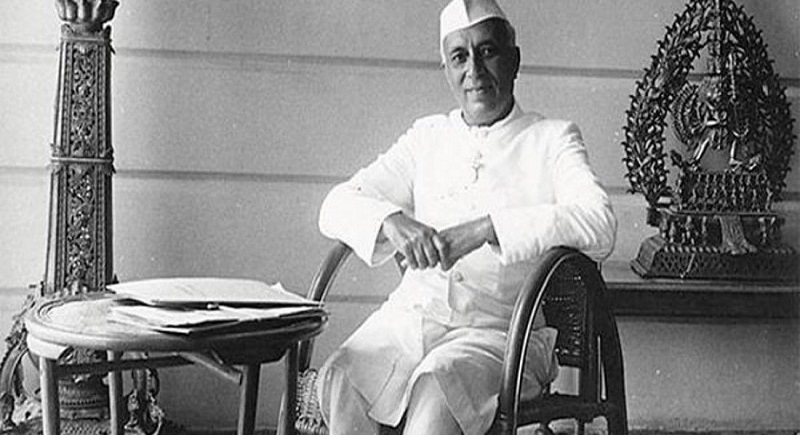
Nehru and downtrodden
Nehru talked about socialism – the then tool for being liberal towards the downtrodden. But surprisingly Nehru did not like Dr. B R Ambedkar, the icon of such liberalism. Hence Nehru did not want him to be in the constituent assembly in spite of his great knowledge of law and economics. He therefore saw to it that Ambedkar was not elected through his own provincial Congress committee. Yet many, including Patel, wanted Ambedkar to be in the constituent assembly. He was therefore elected from Bengal province with the help of some Muslims and Hindutvawadi Shyama Prasad Mukherji. Can we still call Nehru as the apostle of true democratic values and liberalism?
Ambedkar expected that because of his proficiency in economics he would be made the chairman of the draft committee on economic affairs. But Nehru saw to it that Ambedkar was not made chairman of any sub-committee, much less that on economic affairs. Finally under pressure from Patel and others Nehru made Ambedkar the chairman of the overall draft committee of the constitution that was dominated by other civil service dignitaries who dominated its proceedings. Arun Shourie, in his book, “Worshipping False God” has revealed how the draft of the constitution was prepared more predominantly by keeping aside Ambedkar, perhaps at the instance of Nehru. Still Nehru is considered as great liberal! Strange indeed!
Interim cabinet
Nehru had to pick leaders of various sections that formed the Congress movement for independence, as his cabinet ministers in the interim government formed in 1946 CE. It drafted the constitution, accepted it and administered India until first general elections held in 1952 CE. Ambedkar was thus made the law minister in that cabinet to give representation for the downtrodden. He was great social reformer and therefore brought the Hindu Code Bill to reform the Hindu society. Nehru saw to it that it was defeated by the orthodox Hindu leaders. But the same bill was passed later by Nehru in different bits in the first Lok Sabha, when duly elected with dominant Congress majority, in 1952 CE.
General elections
After the demise of Gandhi in 1948 CE and Patel in 1950 CE Nehru dominated the Congress almost as a dictator. Nehru tried all tricks and succeeded in defeating Ambedkar in the general elections to the Lok Sabha in 1952 CE. Ambedkar tried to get into the Lok Sabha in the by-election soon held for the Bhandara constituency of Vidarbha-Maharashtra. But Nehru got him defeated there also. Surprisingly D B Thengdi the dominant ideologue of the RSS-pariwar and later leader of Bharatiya Mazdoor Sangha, a pariwar organization, was the election agent of Ambedkar for that election. Was Nehru still all-inclusive and liberal? The readers should make their own judgment.
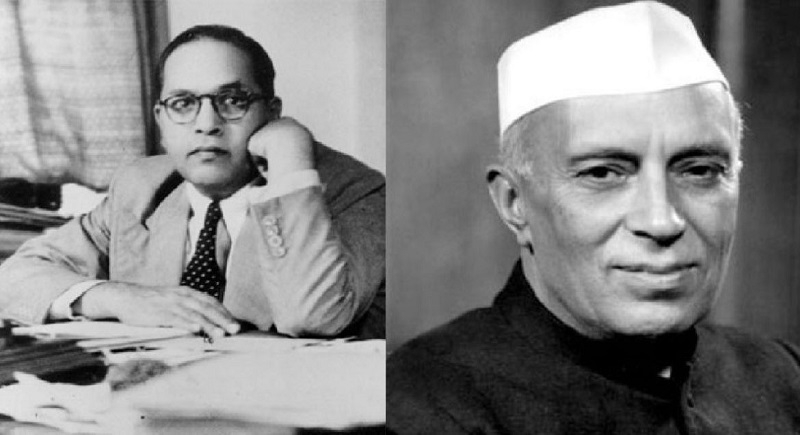
Nehru and democracy
It is human nature and weakness that sycophants (bhats in Hindi) gather around the entre of power. Once Nehru became prime minister so many sycophants gathered around him. The sycophants of Nehru saw him as the apostle of democratic traditions and liberalism in independent India. Nehru fully exploited the murder of Mahatma Gandhi to his political advantages. Nehru was worried about the increase in strength of the RSS particularly against the backdrop of impending partition. The Hindus in the Muslim dominated western and eastern India had nobody to look to for help in those critical days except the RSS. That led to increase in popularity of the RSS. The strength of the RSS was readily seen in their shakhas held daily. It was far more than strength of Congress. It worried Nehru and his leftist friends perhaps because Nehru in particular thought that it might fight elections in independent India against the Congress and perhaps even win in a democratic polity. Hence he was very much worried about his future as a ruler vis-à-vis the RSS. He was looking for an opportunity to defame the RSS.
Fortunately for Nehru, Gandhi was assassinated by Nathuram Godse, a member of Hindu-Rashtra-Wadi, Hindu Maha Sabha soon after getting independence. Nehru would not have been a politician in not using it as an opportunity to crush the Hindu force represented by the RSS to ensure his smooth sailing later. He banned the RSS under alleged charge of Gandhi murder. He put many RSS leaders in jail, including its chief Guruji Golwalkar. The case was handled by the home ministry led by Patel. After a month it was clear to Patel that the RSS was not behind the murder but it was Hindu Maha Sabha. But Nehru insisted to continue the ban and it lasted almost nineteen months. In the meantime the trial was completed and Godse and Apte were hanged for murder of Gandhi. There was no charge on any of the worker of RSS in that trial. Yet it was banned under imaginary pretext. The real liberal and human rights worker Venkat Ram Shashtri mediated to lift the ban but Nehru did not relent. When finally Gowalkar threatened to transform RSS into a political party, to compete with Congress in the political arena, Nehru was left with no alternative but to lift the ban after nearly nineteen months. But by that time RSS was defamed to such an extent that masses looked at it as murderer of Gandhi. Congress has been preaching this lie time and again until today. They did not, and still do not, blame the Hindu Maha Sabha in any way because that was not a mass force to reckon with. This story of illiberalism of Nehru did not end there.
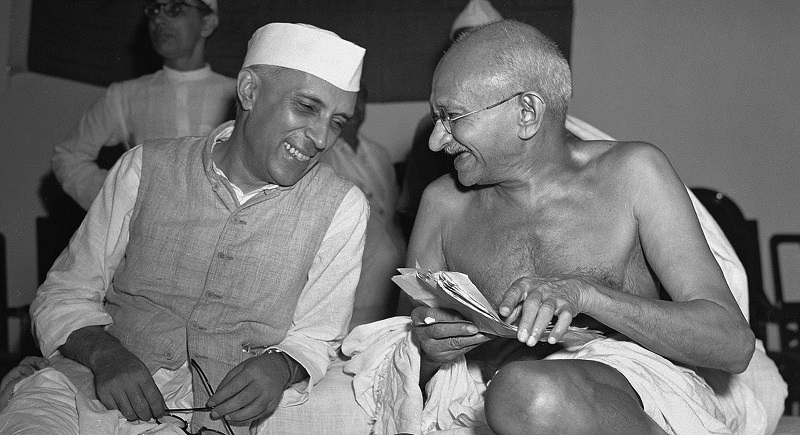
In reality Godse was active worker of Hindu Maha Sabha when he killed Gandhi. He did attend the RSS shakha earlier, but had left it for its docile activities and had become vociferous critic of the pusillanimity of RSS. That is why Patel had recommended to lifting the ban on the RSS after one month. Surprisingly Nehru did not ban Hindu Maha Sabha at all. Shyama Prasad Mukheerji was then all India president of the Hindu Maha Sabha and therefore a member of the cabinet in the interim government led by Nehru. It was left untouched while the RSS was dealt with iron hand. Mukherji continued to be cabinet minister in Nehru’s government all through the period when the RSS was banned. Much later he resigned to become the all India president of the newly formed Bharatiya Jana Sangha with blessings of the RSS, in 1951 CE.
How to interpret all these events? It was all to crush the strong Hindu force as represented by the RSS as a possible and probable challenger to Nehru in the ensuing elections and thereafter. Nehru was power monger to the core and such a person cannot be liberal to sacrifice his selfish political interests. That is why the present author calls him as the progenitor of illiberalism in independent India.
Nehru the dictator
Nehru is trumpeted by his sycophant followers as the apostle of democratic values and ipso facto therefore as a true liberal while brandishing the RSS as only illiberal. Nehru wanted power to rule India in spite of not possessing the majority in the Congress. Until Patel was alive he could not exert much. Gandhi had signed the resolution of dissolution of Congress, as was the practice in those days, on the fateful day of his murder. It was later published in the AICC File No 1578 after a fortnight by his secretary Pyarelal. Nehru cared little. Gandhi wanted the all-inclusive Congress, the crusader for independence, to be dissolved because it had served its purpose by gaining independence. It was conglomeration of all possible shades of socio-political opinions. According to Gandhi, for building independent India, homogeneous political parties were required with their clear cut socio-political and socio-economic visions. He thus wanted all those in the Congress to form their own separate political parties, as per their visions and compete against each other during the elections. In this way no group in Congress could have claimed the ancestry of goodwill of pre-independence Congress to earn votes of gullible public. Nehru was selfish power monger and understood the impact of dissolution of Congress. He sensed the game and did not honour the resolution of dissolution of Congress since Gandhi was no more there to certify it. He claimed the ancestry and goodwill of that Congress brand and exploited it fully. All those who differed with him had to leave Congress and form their separate political parties with names other than Congress. That is how Jay Prakash Narayan, Acharya Kripalani, Ashok Mehta, KM Munshi and such others left the Congress leaving it for Nehru to be its uncrowned dictator. The defectors did float their parties but did not get the brand value of Congress and therefore no public recognition. It all happened after the departure of Patel from the scene in December, 1950 CE.
After independence, Patel got Purushottam Das Tandon elected as the president of the Congress to the utter dislike of Nehru. But after death of Patel in December 1950 Nehru ousted Tandon and himself became the president along with being prime minister. What wrong Tandon had done was never explained. It was his liking for Hindu ethos that was abhorred by Nehru who by nature had dictatorial tendencies –a quality that is anathema to liberalism. Can he still be proclaimed as liberal in any way? Nehru was great in many respects but he was surely not a liberal.
Nehru, Rajendra Prasad and Patel
Patel was known for his Hindutva leanings. That was a thorn in Nehru’s foot. Patel accepted partition in a way to free India from the Muslim menace. He wanted to integrate India for the first time after the Mourya Empire as a unified administrative and political entity. He had got promise from Lord Mountbatten, the then Governor General of India, not to interfere in his tasks, before agreeing for partition. Hence immediately after independence Patel decided to reconstruct the Somnath Temple. Gandhi okayed it provided no governmental financial aid was given. It was completed in 1950 CE. By then Dr. Rajendra Prasad had become the Rashtrapati. Patel invited him to inaugurate the same. Nehru strongly objected to it. But without caring for it Prasad inaugurated it and publicly said that it had eliminated the dark spot of thousand years of slavery of India. Nehru was liberal towards minorities but not towards Hindus. Strange liberalism of Nehru indeed!
Nehru the dynast
Nehru wanted his progeny to lead the country after him. To that extent he was undemocratic and illiberal. But his only progeny Indira Gandhi was never a leader of Congress in her own right. Nehru being a widower always took Indira with him on foreign and domestic tours to look after him and let her understand the politics well. Then he made her the Congress president in 1956 CE, with specific intention of grooming her as the future leader of Congress. What was her qualification to become all India president of Congress? Practically nil. But by then Nehru had pampered a large number of his sycophants in such a way as to later help his daughter. But in spite of his wishes and those of his sycophants she could not be made prime minister after his death in 1964 CE. Lal Bahadur Shashtri’s claim could not be set aside by her and sycophants of Nehru family. But Shashtri included her in his cabinet to keep that flock happy. Shashtri died soon and sycophants of Nehru wanted her to be elevated as prime minister perhaps as ‘goongi gudia’ to facilitate their crony activities unhindered. But finally she established her sole control on the party as undisputed leader. Thus began the dynastic rule of Nehru-Gandhi family in India in an apparently democratic way.
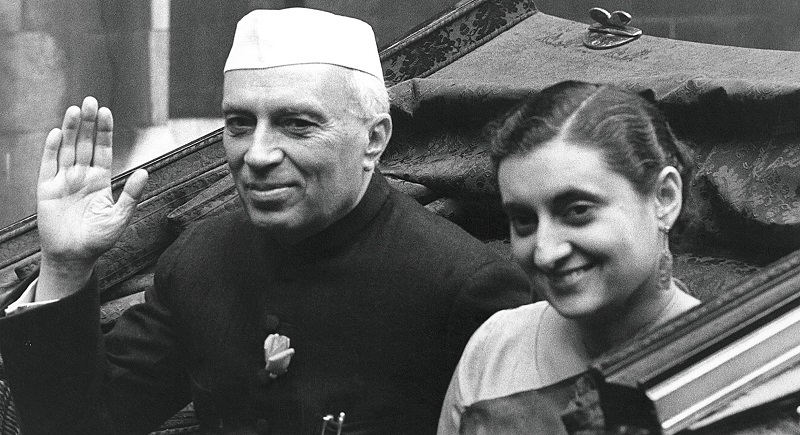
Perverted liberalism
Nehru was more liberal where it was not required and was illiberal where liberalism was required. That is how he did not consider Mohammed Ali Jinnah, a secular and forward looking Muslim, as the true representative of Muslims, in the struggle for independence. He was more liberal towards die-hard religious bigot Muslims to accommodate them in the struggle. Finally Mohammed Ali Jinnah broke away from Congress to eventually ask for partition of India to create Pakistan. Similarly Arif Mohammed Khan was true secular Muslim but after Nehru Congress made him to leave Congress; later he joined the BJP. This perverted vision of liberalism has cost dear not only to the Congress but to the entire nation.
Hence on the whole was Nehru essentially liberal? He was not on the whole liberal on any account. In fact he sowed the seeds of illiberalism in the post-independence period that has cost dear to the nation. He was also responsible to breed the dynastic rule firmly in an apparently democratic India? The reality is Nehru never wanted to function democratically. He was power monger to the core and wanted the power to remain with his family forever. His progeny has been worse in this respect.
What Nehru sowed in Congress is elimination of democratic norms. The same was picked up by others in starting their own family political parties all over India. The ignorant, gullible and poor Indians, knowing not what democracy means, are happy to work under various dynastic rules as in the past Indian history. Is it liberalism? That is why the present author calls Nehru as the progenitor of illiberalism in India.
The cultivation of illiberalism in Congress over all these years led to imposition of emergency by Prime Minister Indira Gandhi in 1975 CE essentially to continue her dynastic rule. Is it liberalism in any way? Indira Gandhi always referred to the RSS as American CIA agent. The fact is there is no other group more nationalist than the RSS. The same illiberal mind-set of Congress made Prime Minister Rajiv Gandhi to nullify the Supreme Court judgment in the case of Shahabano. Is it liberal or democratic in any way? With time the illiberal mind set got more and more entrenched in the Congress to somehow stick to power under the camouflage of democracy. When the ground became too slippery during the regime of Manmohan Singh, at the instance of Sonia Gandhi, they invented the theory of Saffron Terror because the Hindu force led by the RSS pariwar was the only challenger left to contain the Congress at the national level. It has been proved as baseless by the recent judgments in some terror related cases. In this attempt they defamed even the army personnel in the form of Colonel Purohit. It is all for power and nothing else. Congress can mortgage India for selfish power interests. Congress does not understand what liberalism means. These are the seeds of illiberalism primarily sown by Nehru in the beginning that has now grown into a banyan tree in its fourth generation. Yet they blame the RSS-pariwar for it. Simply shameful!
With reference to the saffron terror Rahul Gandhi went to the extent of saying that the saffron terror was worse than the Muslim terrorism initiated by Pakistan. This is the height of illiberalism of Congress in contemporary times. But the progenitor of it remains the power monger Nehru himself.
True liberalism
The activities, statements and behavior of almost all the Congress workers, but more particularly of its leaders all through the independent years has almost blurred the distinguishing line between liberalism and illiberalism in Indian polity. Each one claims to be liberal and blames the other as illiberal. Is there anyone who can be looked to as the apostle of liberalism – quality so essential for democratic functioning – in India? Yes there are sun-like examples still shining on the Indian horizon. These are only from the RSS-pariwar.
When finally Nehru lifted the ban on the RSS, imposed for nineteen long months, in 1949 CE, Golwalkar the then RSS chief undertook a whirlwind tour of India to explain the position of RSS. At one place he was asked how he viewed the action of Nehru in banning the RSS for no reason as the ban was unconditionally withdrawn (see record of proceedings of the then Maharashtra Legislative Council). It was stated on the floor by the concerned minister that the ban was withdrawn unconditionally. Golwalkar then had replied,” if the tongue gets bitten in between the teeth do we blame the teeth, not at all, because both belong to us”. That is how he showed magnanimity of heart towards own democratic rulers. This is what is called liberalism, repeat liberalism
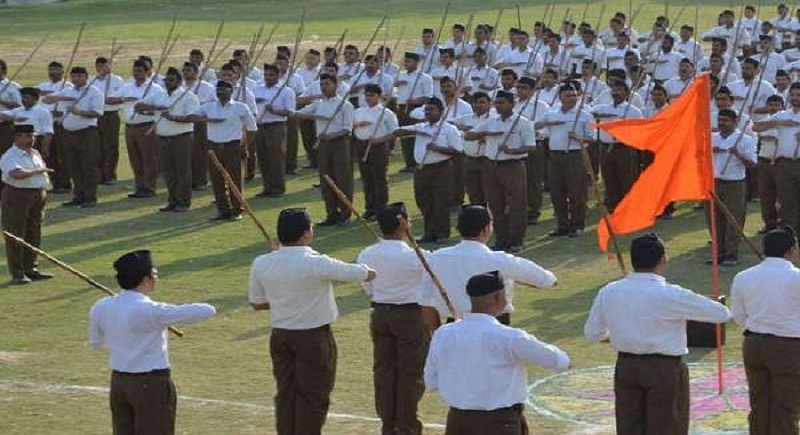
Perverted liberalism
Nehru was more liberal where it was not required and was illiberal where liberalism was required. That is how he did not consider Mohamed Ali Jina, a secular and forward looking Muslim, as the true representative of Muslims, in the struggle for independence. He was more liberal towards die-hard religious bigot Muslims to accommodate them in the struggle. Finally Jina broke away from Congress to eventually ask for partition of India to create Pakistan. Similarly Arif mohammed Khan was true secular Muslim but after Nehru the Congress made him it; later he joined the BJP. Had Nehru practiced true liberalism the nation the Indian polity today would have been much better. This perverted vision of liberalism has cost dear not only to the Congress but to the entire nation.
Personal experience
Though much of what has been quoted above happened in my younger days but the details given are all from the historical records. Here is my very personal experience with Nehru’s government. I passed my B. Tech. examination from Banaras Hindu University in 1959 CE with position in merit list. Immediately then I became lecturer at the same department. Those were the days when so many scholarships were given by many advanced countries for Indians to pursue higher studies and research, particularly in science and technology, abroad in advanced universities. Accordingly I applied in a row in 1960, 61 and 1962 CE for such scholarships, correspondingly to study in England, France and Australia. I was selected in one each, one after the other all these years as I got letter of my selection directly from that university to me. But in 1960 CE after a month or so I got another letter from that university that deliberations in my case had been terminated by GOI. In 1961 CE the same thing happened with respect to Paris University. Third time the same thing happened in the case of University of Melbourne. It was conveyed to me by my earlier teacher HN Sinha who had already migrated to Australia and was working as post-doctoral research fellow in the same department. He wondered what was happening and offered me that he would arrange for me a Melbourne university scholarship in- stead. It was very poor and I had to go there on my own. Having been disappointed three years in a row I agreed to it. But before leaving for Melbourne on my own I went to Delhi to enquire why I was rejected in three such scholarships in a row. The lady desk-officer enquired from me if I was associated with any other activity other than teaching in BHU. I told her that I was active worker of RSS. Then she said that it was the policy of the Congress central government not to give such scholarships to RSS workers. Then it became clear to me why I was rejected at the eleventh hour thrice. Finally I went on my own and completed my Masters and Doctorate degrees from Melbourne by 1965 CE. At that time Nehru was at his zenith of power. Hence his illiberalism, particularly towards his political opponents was also at its peak. Yet if his sycophants trumpet him as the apostle of liberalism we must start looking for another definition of liberalism in Indian polity, perhaps call illiberalism as liberalism par excellence.
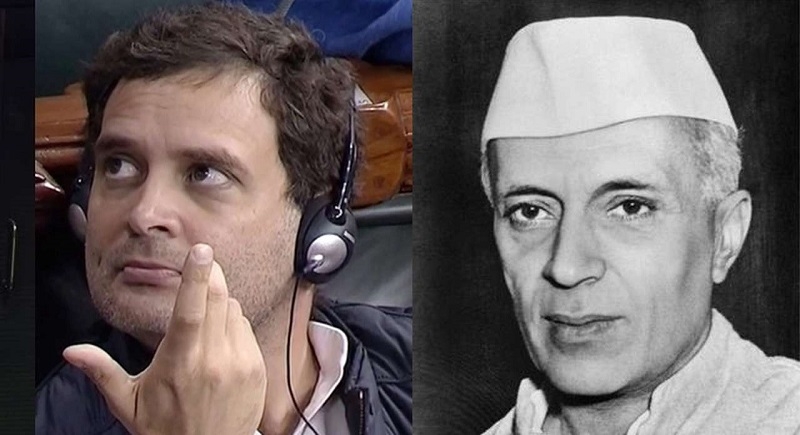
Like honesty liberalism is not any theory. It is practice to be cultivated through the examples like that of King Harishchandra, Shibi, Lord Rama and Krishna. It needs enculturation through sustained efforts as the RSS is doing through its daily shakhas. But it does not mean that the day-to-day illiberalism, in one or the other form, like not honouring the sentiments of majority, by the hooligans is to be tolerated. If it is responded then it must be realized that it is mere reaction.
